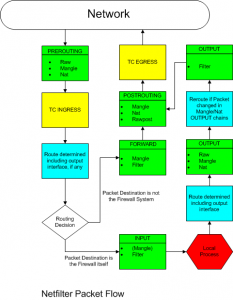1 2 3 4 5 6 7 8 9 10 11 12 13 14 15 16 17 18 19 20 21 22 23 24 25 26 27 28 29 30 | php example<?php$iv = "6543210987654321"; /* 必须16位哦 */$password="1234567812345678";$data="12345678901234567890012345678909999999999";#$enc=aes_encode($data,$password)."\n";$enc="S3Aqx0GUd3vcz5r6CkCkonPzwfaL3z3BgMtP8aEbzKUNeE+8APZVP02sviaSZXyS";echo "decode:[".aes_decode($enc,$password)."]\n";/* 采用128位加密,密钥也必须是16位 */function aes_encode($sourcestr, $key){ global $iv; return base64_encode(mcrypt_encrypt(MCRYPT_RIJNDAEL_128, $key, $sourcestr, MCRYPT_MODE_CBC, $iv));}function aes_decode($crypttext, $key){ global $iv; return rtrim(mcrypt_decrypt(MCRYPT_RIJNDAEL_128, $key, base64_decode($crypttext), MCRYPT_MODE_CBC, $iv), "\0");}?> |
C++ example
1 2 3 4 5 6 7 8 9 10 11 12 13 14 15 16 17 18 19 20 21 22 23 24 25 26 27 28 29 30 31 32 33 34 35 36 37 38 39 40 41 42 43 44 45 46 47 48 49 50 51 52 53 54 55 56 57 58 59 60 61 62 63 64 65 66 67 68 69 70 71 72 73 74 75 76 77 78 79 80 81 82 83 84 85 86 87 88 89 90 91 92 93 94 95 96 97 98 99 100 101 102 103 104 105 106 107 108 109 110 111 112 113 114 115 116 117 118 119 120 121 122 123 124 125 126 127 128 129 130 131 132 133 134 135 136 137 138 139 140 141 142 143 144 145 146 147 148 149 150 151 152 153 154 155 156 157 158 | string COpenSSL::aes_encode(const char *sourcestr, char *key = ""){ if (strcmp(key, "") == 0) { return ""; } int len = strlen(sourcestr); unsigned char iv[AES_BLOCK_SIZE+1] = "6543210987654321"; // 注意,iv绝对不能是const的,否则会段错误 unsigned char * out = (unsigned char *)malloc(1024*1024); if (out == NULL) { fprintf(stderr, "No Memory!\n"); } AES_KEY aes; if(AES_set_encrypt_key((unsigned char*)key, 128, &aes) < 0) { return NULL; } /* 计算补0后的长度 */ int out_len = ((len - 1) / 16 + 1)* 16; char * sstr = (char *)malloc(sizeof(char) * out_len + 1); /* 补0 */ memset(sstr, 0, out_len+1); strcpy(sstr, sourcestr); AES_cbc_encrypt((unsigned char*)sstr, out, out_len, &aes, (unsigned char*)iv, AES_ENCRYPT); /* 这里的长度一定要注意,不能用strlen来获取,加密后的字符串中可能会包含\0 */ string out2 = base64_encode((char *)out, out_len); free(out); free(sstr); ofstream myfile; myfile.open("aes.txt", ios::out); myfile.write((char *) out2.c_str(), out2.size()); myfile.close(); return out2;}string COpenSSL::aes_decode(const char *crypttext, char *key = ""){ if (strcmp(key, "") == 0) { return ""; } int out_len = 0; unsigned char iv[AES_BLOCK_SIZE+1] = "6543210987654321"; string in = base64_decode(crypttext); out_len=in.size(); char *out = (char *) malloc(sizeof(char) * out_len + 1); memset(out, 0, out_len + 1); AES_KEY aes; if(AES_set_decrypt_key((unsigned char*)key, 128, &aes) < 0) { return ""; } AES_cbc_encrypt((unsigned char*)in.c_str(), (unsigned char*)out, out_len, &aes, (unsigned char*)iv, AES_DECRYPT); //free(in); string sRet=out; free(out); return sRet;}bool COpenSSL::testAES(std::string p_sKey, std::string p_sData2Encrypt, bool p_bEnc, std::string & p_sEncStr) { /* * aes BLOCK HAVE TO BE 16 BIT BLOCK * AES key has to be 16 CHAR */ std::string sBuffer, sOutBuffer; //std::string sKey="1234567812345678"; unsigned char aes_key[16]; //128 bit memset(aes_key, 0, 16); int nKeyLen = p_sKey.size() <= 16 ? p_sKey.size() : 16; memcpy(aes_key, p_sKey.c_str(), nKeyLen); //Get password inplace /* Buffers for Encryption and Decryption */ unsigned char databuffer[16]; memset(databuffer, 0, 16); unsigned char outbuffer[16]; memset(outbuffer, 0, 16); /* AES-128 bit CBC Encryption */ AES_KEY enc_key, dec_key; if (p_bEnc) { if (AES_set_encrypt_key(aes_key, sizeof(aes_key) * 8, &enc_key) < 0) { return false; } } else { if (AES_set_decrypt_key(aes_key, sizeof(aes_key) * 8, &dec_key) < 0) { return false; } } int32_t nDataLen = 0; if (p_bEnc) { nDataLen = p_sData2Encrypt.size(); sBuffer.append((char *) &nDataLen, sizeof(int32_t)); sBuffer.append(p_sData2Encrypt); int nMod = sBuffer.size() % 16; if (nMod != 0) { sBuffer.append((char *) databuffer, 16 - nMod); } } else { sBuffer = base64_decode(p_sData2Encrypt); nDataLen = sBuffer.size(); if (nDataLen % 16 != 0) { TRACE("Wrong Buffer, Len mod 16 has to be 0\n"); return false; } } int nDataIndex = 0; int nCopySize = 16; nDataLen = sBuffer.size(); //AES_set_decrypt_key(aes_key, sizeof(aes_key)*8, &dec_key); // Size of key is in bits while (nDataIndex < nDataLen) { memcpy(databuffer, sBuffer.c_str() + nDataIndex, nCopySize); if (p_bEnc) { AES_ecb_encrypt(databuffer, outbuffer, &enc_key, AES_ENCRYPT); } else { AES_ecb_encrypt(databuffer, outbuffer, &dec_key, AES_DECRYPT); } nDataIndex += 16; sOutBuffer.append((char *) outbuffer, 16); } if (p_bEnc) { p_sEncStr = base64_encode((unsigned char *) sOutBuffer.c_str(), sOutBuffer.size()); } else { int32_t nTotalLen = 0; memcpy((char *) &nTotalLen, sOutBuffer.c_str(), sizeof(int32_t)); p_sEncStr.append(sOutBuffer.c_str() + sizeof(int32_t), nTotalLen); } return true; } |

